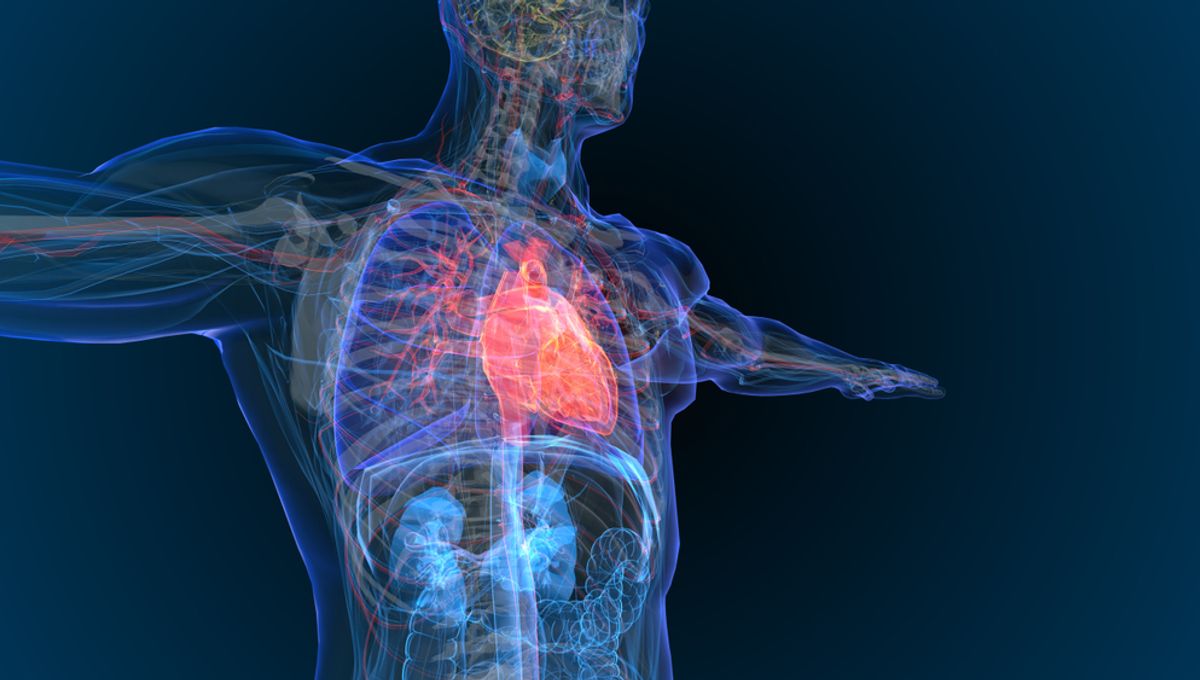
While cancer can develop in nearly every organ in the body, it’s rare to ever hear about the disease impacting the heart. That’s pretty surprising when you think how fundamental the heart is to the body. Despite this lack of conversation, it is possible for people to develop primary cancer of the heart – although, thankfully, it is very rare.
What is heart cancer?
Primary heart tumors are so uncommon that statistics are few and far between, but one estimate suggests they occur in between 0.0017 percent and 0.028 percent of people. However, not all these tumors are malignant.
Just like any other part of the body, a person can have non-malignant (non-cancerous, or benign) tumor growths on the heart, for example, ones known as myxoma. While these are benign, they can cause serious health problems if the tumor impacts blood circulation in the heart chambers.
The more daunting issue is malignant cardiac tumors, which account for just 25 percent of primary heart tumors.
“Throughout my career, I’ve probably seen malignant primary cancers of the heart maybe two or three times,” Dr Tochukwu Okwuosa, a cardiologist and director of cardio-oncology at Rush University Medical Center in Chicago, told IFLScience.
“They’re not very common malignancies and that’s the reason why most people don’t talk about them often,” she added.
No different from any other malignant cancer, this involves uncontrollable cell growth, making the disease spread and invade other parts of the body, a process called metastasis. When this occurs in the heart, it can often be especially aggressive.
“When they’re malignant, they’re really malignant, unfortunately. Nobody ever wants to be told that the tumor in their heart is a malignant cancer because the chances of curing it is very low and the chances of death is very high, even with chemotherapy,” continued Dr Okwuosa.
Relatively speaking, one of the more common malignant tumors of the heart is sarcoma, which emerges out of the soft connective tissues. It remains exceptionally rare, but it is an extremely unpleasant diagnosis to receive.
“The most common malignant tumor of the heart are cardiac sarcomas. Those are the ones that, you know, when you have it, it’s almost like saying that it’s a death sentence, unfortunately,” Okwuosa explained to IFLScience.
Why is heart cancer rare?
Just a small handful of prominent public figures have suffered from heart cancers. Virgil Abloh, the celebrated fashion designer behind the brand Off-White, died in 2021 at the age of 41 due to cardiac angiosarcoma, a rare form of cancer that affects the blood vessels of the heart. Eric Carr, who served as the drummer of the rock band Kiss during the 1980s, died of heart cancer in 1991, also at the age of 41.
The heart is an incredible organ, but it’s not equipped with any anti-cancer superpowers, so why does the disease appear to be exceptionally rare?
One theory is that the cells that make heart muscle itself – cardiac myocytes – are “terminally differentiated.”
Cancer occurs due to an “error” during cell division, resulting in a mutated cell that goes on to proliferate abnormally and divide uncontrollably. In heart muscle, however, the cells don’t divide in later life compared to other organs like, say, epithelial cells of the skin.
Although this does mean the heart is not good at repairing damaged tissue, it does provide them with some resistance to tumors.
What are the symptoms of heart cancer?
The extreme scarcity of heart cancer cancers is generally a positive thing, but it does mean there’s a real lack of definitive data about the disease, making it tricky for doctors to deal with. For instance, it’s not even clear whether any particular lifestyle choices or health conditions up the risk of heart cancer. It is even uncertain how and why cardiac tumors arise or how best to treat them.
“We don’t know what risk factors are. There are no specific risk factors for patients to have cancers of the heart,” continued Dr Okwuosa. “It is kind of scary, isn’t it?”
Symptoms of heart cancer can also be tough to pinpoint. Some tumors develop no symptoms, while most others cause only non-specific symptoms, such as tiredness, shortness of breath, dizziness, chest pain, and palpitations.
If you’re feeling under the weather and noticing any of these symptoms, it is unlikely to be a cardiac tumor, but it’s always worth getting it checked out by a medical professional.
“I always like to stress: if you don’t feel right, go get checked out. That’s just the bottom line, right? I think that sometimes people may not feel well, and they say ‘oh, you know, this is gonna pass.’ Unfortunately, sometimes, by the time you come in, it’s too late. If people aren’t sure, then they need to get checked out and evaluated,” Dr Okwuosa concluded.
The content of this article is not intended to be a substitute for professional medical advice, diagnosis, or treatment. Always seek the advice of qualified health providers with questions you may have regarding medical conditions.
All “explainer” articles are confirmed by fact checkers to be correct at time of publishing. Text, images, and links may be edited, removed, or added to at a later date to keep information current.
Source Link: Why Do We Almost Never Hear About Heart Cancer?